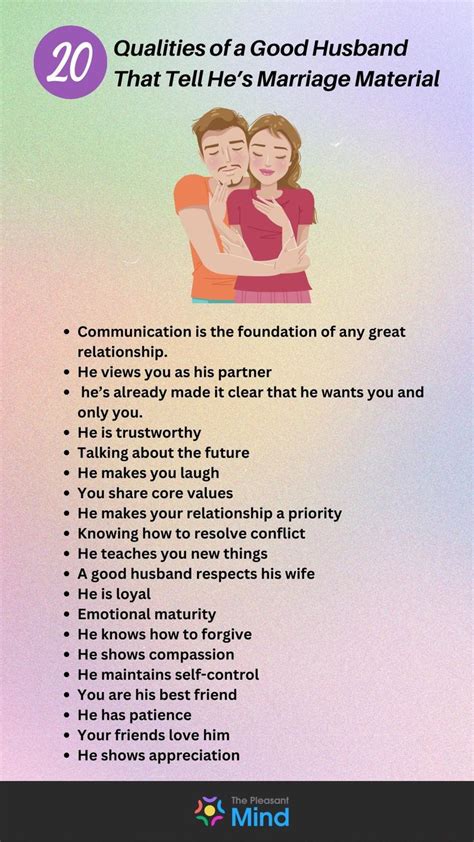
Rejection, a universal human experience, can sometimes trigger unexpected and disturbing reactions, as highlighted by a recent online discussion where women shared 19 instances of aggressive behavior from men after romantic rejection. These accounts challenge the “nice guy” trope, revealing instances of rage, manipulation, and even threats when romantic advances were not reciprocated.
The thread, which went viral, detailed instances ranging from subtle manipulation to overt hostility, prompting a broader conversation about the entitlement some men feel towards women’s affection and attention. Many women recounted experiences where polite disinterest was met with immediate anger, insults, or attempts at emotional blackmail. The shared stories underscore the potential dangers women face when navigating social interactions with men who perceive rejection as a personal affront rather than a normal part of human interaction.
One user recounted an experience where a man, after being politely turned down, sent a barrage of abusive messages, questioning her character and appearance. Another described how a seemingly friendly colleague turned cold and vindictive after she declined his invitation for a date, leading to a hostile work environment. These narratives highlight a disturbing pattern: the expectation that friendliness or politeness implies romantic interest, and the subsequent anger when this expectation is not met.
“It’s scary how quickly some men turn nasty when they don’t get what they want,” one commenter wrote, capturing the sentiment of many who shared their experiences. The thread also served as a platform for women to offer advice on how to navigate these situations safely, emphasizing the importance of setting clear boundaries and prioritizing personal safety. Many suggested documenting interactions and seeking support from friends, family, or even professional resources if they feel threatened or harassed.
The online discussion also shed light on the broader societal issues that contribute to this behavior. Many commenters pointed to the pervasive influence of media portrayals that romanticize persistence and portray women as “playing hard to get.” Others criticized the lack of education around consent and healthy relationships, arguing that many men are not taught to respect women’s autonomy and boundaries. The discussion emphasized the need for a cultural shift in how men are socialized to view women and relationships, promoting respect, empathy, and genuine equality. The shared stories serve as a stark reminder of the potential consequences of toxic masculinity and the importance of challenging harmful stereotypes. The conversation continues to evolve, encouraging open dialogue and offering support to those who have experienced similar situations. The anonymity of the online forum provided a safe space for women to share their experiences without fear of judgment or retaliation, further amplifying the impact of the discussion.
Detailed Examples and Analysis:
The original article highlighted 19 specific tales, but a deeper analysis of similar accounts found online reveals recurring themes:
-
The Insult Slingers: One of the most common reactions to rejection is a barrage of insults aimed at the woman’s appearance, intelligence, or character. These insults often seem designed to undermine the woman’s self-esteem and punish her for not reciprocating the man’s interest. The intent appears to be to make the woman feel inadequate and regret her decision. For example, one woman described how a man she rejected called her “ugly,” “fat,” and “unworthy of love” in a series of angry text messages.
-
The Guilt Trippers: Another tactic employed by rejected men is to attempt to manipulate the woman into feeling guilty for not returning their affection. This often involves exaggerated displays of sadness, self-pity, or even threats of self-harm. The goal is to pressure the woman into reconsidering her decision by appealing to her sense of empathy and responsibility. One woman shared an experience where a man she rejected threatened to “do something stupid” if she didn’t give him a chance.
-
The Persistent Pursuers: Some men refuse to take “no” for an answer and continue to pursue the woman despite her clear disinterest. This can involve constant phone calls, text messages, emails, or even showing up uninvited at her home or workplace. This behavior can be incredibly intrusive and frightening, as it violates the woman’s boundaries and sense of personal space. One woman recounted how a man she rejected continued to contact her for months, despite her repeatedly telling him to leave her alone.
-
The Revenge Seekers: In some cases, rejection can trigger a desire for revenge. This can manifest in various ways, such as spreading rumors about the woman, sabotaging her relationships, or even engaging in acts of vandalism or violence. This type of behavior is particularly disturbing, as it demonstrates a complete disregard for the woman’s safety and well-being. One woman described how a man she rejected started spreading false rumors about her at work, leading to her being ostracized by her colleagues.
-
The “Friend Zone” Fury: A recurring theme revolves around the perceived injustice of being “friend-zoned.” Men expressing anger at women for not reciprocating romantic interest after the man has offered friendship, support, or favors. This expectation of romantic reciprocation highlights a transactional view of relationships, where kindness is seen as an investment with a guaranteed return. One woman wrote how a man she considered a friend turned hostile after she started dating someone else, accusing her of “using him” for his emotional support.
The shared experiences highlight the importance of clear communication, setting boundaries, and trusting one’s instincts. Many women reported feeling pressured to be “nice” or “polite” even when they felt uncomfortable, fearing that asserting themselves would provoke a negative reaction. The online discussion emphasized that women are not obligated to manage men’s feelings or to sacrifice their own safety and well-being to avoid hurting someone’s ego.
Societal Context and Implications:
The phenomenon of men reacting negatively to rejection is rooted in broader societal issues related to gender roles, power dynamics, and the portrayal of relationships in the media. Toxic masculinity, which emphasizes dominance, aggression, and emotional suppression, can contribute to a sense of entitlement and a belief that men are entitled to women’s attention and affection. The lack of comprehensive sex education, which often focuses on biology rather than consent and healthy relationships, further exacerbates the problem.
Media portrayals of romance often perpetuate harmful stereotypes, such as the idea that women “play hard to get” and that persistence will eventually win them over. These portrayals can create unrealistic expectations and contribute to a sense of frustration and resentment when men are rejected.
The online discussion also raised concerns about the potential for these behaviors to escalate into more serious forms of violence. Studies have shown a correlation between stalking, harassment, and intimate partner violence, highlighting the importance of taking these behaviors seriously and intervening early.
Expert Opinions and Recommendations:
Experts in gender studies and psychology emphasize the need for a multi-faceted approach to address this issue, including:
-
Challenging Toxic Masculinity: Promoting healthy masculinity and challenging traditional gender roles can help men develop more respectful and equitable attitudes towards women. This can involve encouraging men to express their emotions in healthy ways, to seek help when they are struggling, and to challenge harmful stereotypes.
-
Improving Sex Education: Comprehensive sex education should include topics such as consent, healthy relationships, communication skills, and bystander intervention. This can help young people develop a better understanding of boundaries, respect, and empathy.
-
Promoting Media Literacy: Teaching people how to critically analyze media portrayals of romance and relationships can help them identify and challenge harmful stereotypes. This can involve discussing the unrealistic expectations created by romantic comedies and other forms of media.
-
Providing Support for Victims: It is important to provide support and resources for women who have experienced harassment or abuse. This can include offering counseling, legal assistance, and safe housing.
-
Holding Perpetrators Accountable: Perpetrators of harassment and abuse should be held accountable for their actions. This can involve reporting incidents to the police, filing restraining orders, and pursuing legal action.
The online discussion has served as a catalyst for change, sparking conversations about gender dynamics, consent, and healthy relationships. By sharing their experiences and offering support to one another, women are empowering themselves to challenge harmful behaviors and create a safer and more equitable society. The importance of continuous dialogue, education, and awareness cannot be overstated in fostering a culture of respect and understanding.
Moving Forward:
The viral thread is a microcosm of a larger societal issue. Addressing the root causes of men’s negative reactions to rejection requires a collective effort involving individuals, communities, and institutions. By promoting healthy masculinity, improving sex education, and challenging harmful stereotypes, we can create a culture where rejection is viewed as a normal part of human interaction and where women are treated with respect and dignity. The key is to foster empathy, understanding, and open communication, ensuring that all individuals feel safe and empowered to express their boundaries and make choices that align with their values. The online discussion has illuminated the path forward, and it is our responsibility to continue the journey towards a more equitable and just society.
Frequently Asked Questions (FAQ):
-
What is the “nice guy” trope being discussed in relation to these stories?
The “nice guy” trope refers to the idea that men who are outwardly polite and friendly expect to be rewarded with romantic or sexual attention from women. When this expectation is not met, they may react with anger or resentment, feeling entitled to the woman’s affection simply because they were “nice.” It’s a form of transactional thinking where kindness is seen as currency for romantic reciprocation.
-
What are some common reactions men exhibit after being rejected, according to the shared experiences?
Common reactions include: insults and name-calling directed at the woman, guilt-tripping and emotional manipulation, persistent pursuit despite clear disinterest, seeking revenge through rumor-spreading or sabotage, and expressing anger at being “friend-zoned” after perceived acts of kindness.
-
What societal factors contribute to men reacting negatively to rejection?
Several factors contribute, including: toxic masculinity, which emphasizes dominance and entitlement; a lack of comprehensive sex education focusing on consent and healthy relationships; and media portrayals that romanticize persistence and portray women as “playing hard to get.” These factors create unrealistic expectations and contribute to a sense of frustration and resentment when men are rejected.
-
What advice was shared in the online discussion for women navigating these situations?
The advice included: setting clear boundaries and sticking to them; prioritizing personal safety and trusting one’s instincts; documenting interactions in case of escalation; seeking support from friends, family, or professional resources; and understanding that women are not obligated to manage men’s feelings or sacrifice their own well-being to avoid hurting someone’s ego.
-
What steps can be taken to address the underlying issues that contribute to this behavior?
Steps include: challenging toxic masculinity by promoting healthy expressions of emotions and respectful attitudes towards women; improving sex education to include consent, healthy relationships, and communication skills; promoting media literacy to critically analyze portrayals of romance; providing support for victims of harassment and abuse; and holding perpetrators accountable for their actions through reporting, restraining orders, and legal action.









